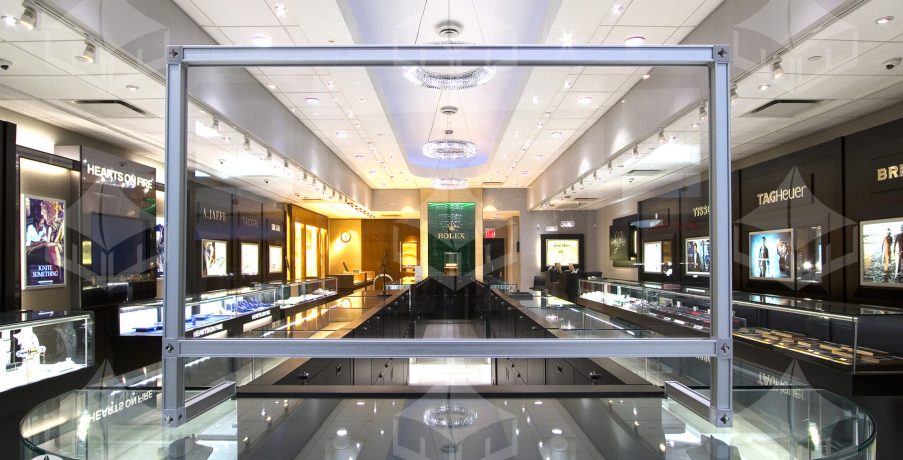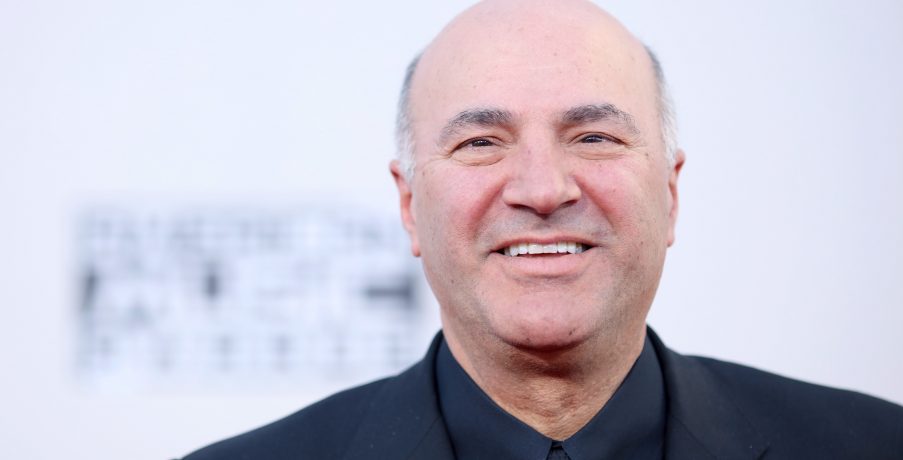
Lee Brice: Garth Brooks is my hero | Kurt's Country
Neil A. Carousso produces NewsNation original “Kurt’s Country” – a celebration of country music and a slice of Americana with host Kurt Bardella.
-
Small Business Spotlight: Entrepreneurs Make Innovative Pivots And Solutions To Survive
Post Views: 1,043By Neil A. Carousso
NEW YORK (WCBS 880) — Employees may not recognize their offices when they return because owners are reimagining the workplace to adjust to the new reality they face against the coronavirus pandemic.
“There are a lot of people suddenly in need of a home office setup,” said Greg Hayes, co-founder and chief executive officer of Branch – a high-quality furniture line based in Manhattan.
Hayes tells Joe Connolly and Neil A. Carousso its home office furniture sales have grown exponentially since March.
“We’re going to have an entire line of the company that’s focused on building out a work from home environment,” he said on the WCBS Small Business Spotlight, sponsored by BNB Bank.
“By far the biggest thing is an ergonomic chair,” Hayes said of its customers’ home office needs. “We can barely keep up with demand for ergonomic chair sales.”
Experts say an ergonomic workstation can reduce or prevent discomfort in your back, neck and other stress areas. An ergonomic chair supports one’s body in a neutral position to allow for long periods sitting at a desk rather than being hunched over the computer.
The Branch CEO said desks and storage products, namely credenzas, and filing cabinets are also in increased demand amid the pandemic.
Hayes started in commercial real estate in Toronto, Canada before moving to New York City and launching Branch in 2018. The furniture store allows companies to trade-in its used Branch furniture for a store credit to update its workspace. Now, many businesses will be doing that to implement social distancing measures.
“Things like acrylic panels or fabric panels to separate employees or spacing furniture out with things like credenzas. That’s been popular across the board,” he said.
https://www.facebook.com/NeilACarousso/videos/1134343616902846/
An entrepreneur on Staten Island is manufacturing partitions for the newly designed workplace.
“It’s very modern-looking, it’ll fit into pretty much any atmosphere you bring it into and we’re able to customize them,” said Scott Weisberg of Everything Entertainment.
The events company owner made several pivots when weddings and parties he had on the calendar were canceled. Weisberg was inspired by an advertisement online and immediately started looking into how he could improve other partitions on the market.
“We make stuff out of acrylic, we make stuff out of plexiglass, and everything else all the time. I can make this in my shop,” he thought a few weeks ago even though he wasn’t enamored with the thin profit margins, but felt, “We could do something to help out.”

Everything Entertainment Weisberg’s new clients include a veterinary office, a real estate firm and beauty salons. He’s received interest from Manhattan building managers to install these so-called sneeze guards at reception desks.
Aside from the new service, he made adjacent moves to his existing hospitality business of 32 years to rent tents to existing local hospital clients in the Tri-State Area and state governments for COVID-19 testing sites.
Restaurateurs are calling Weisberg for long-term rentals of its modular tents to maximize their outdoor space to allow for social distancing when they are allowed to reopen for dine-in meals.
“It’s limitless on what we can provide,” he said, laughing that he doesn’t know how much modular tent space he owns. “Tens of thousands, hundreds of thousands square feet, I have no idea. It’s a lot.”
Weisberg and Hayes, like many entrepreneurs, are tapping into their creativity and seemingly endless stream of ideas to develop solutions to survive and make a positive impact during an unprecedented time in history that has significantly altered the way businesses operate. The COVID-19 pandemic is also accelerating the implementation of advanced technology in industries that have been largely undisrupted.
Listen to the WCBS Small Business Spotlight Podcast on the RADIO.COM app or on the media player above for more on what the future of industries look like post-coronavirus.
-
‘Back Off’: Ex-Bloomberg Chief Of Staff On Gov’t’s Role In Small Business Recovery
Post Views: 839By Neil A. Carousso
NEW YORK (WCBS 880) – As parts of the country, including New York, New Jersey and Connecticut begin to reopen in phases, business owners must change their operations to adjust to the new normal in the age of COVID-19.
“This isn’t just about revenues and profits for me, said Peter Madonia who owns the family-run Madonia Brothers Bakery in The Bronx’s Little Italy. “This is also about the fabric of a vibrant neighborhood.”
Madonia is the chairman of the Belmont District Management Association. He told Joe Connolly and Neil A. Carousso on the WCBS Small Business Spotlight, sponsored by BNB Bank, that some restaurants will not be able to survive as they already operate on small margins, but there is a path to recovery if they begin to reopen this month and owners are given the freedom to develop solutions.
“Every business should know what is expected of it in terms of customer interaction, occupancy capacity, masks or no masks,” Madonia explained. “And then, I think they have to back off a little bit – the government.”
He served as chief of staff to former New York City Mayor Michael Bloomberg and formerly worked as Chief Operating Officer of the Rockefeller Foundation. He tells WCBS 880 city and state governments need to provide “clarity” on health guidelines.
“None of them have made a payroll,” Madonia said of government officials. “I don’t want you telling me how to run my business. Tell me what the macro level rules are and I, as the entrepreneur, will figure out how to make my business work in that context or not.”
He emphasized he has “real confidence” in business owners pivoting in this unprecedented time.
https://twitter.com/NeilACarousso/status/1263166163460263937
Madonia is reimagining his operations and that of his business community on Arthur Avenue. A large majority of their customers – 80 percent – drive from 10-40 miles away to its establishments. It has never been a profitable option to close its lots in the evening, but the business improvement district (BID) leader is considering it to boost sales in this unprecedented time.
“The restaurants can increase capacity on the street and curb,” he said of this proposal the BID is considering.
“I think the City has to have some flexible understanding that not every neighborhood is the same, not every business district is the same, and let the business districts innovate a little bit on how theirs works best in what a new normal looks like,” said Madonia.
Listen to the WCBS Small Business Spotlight Podcast on the RADIO.COM app or above for more on the local economic recovery and small business survival.
-
‘Shark Tank’ Star Daymond John Reveals Creative Business Solutions To Survive Coronavirus Pandemic
In Best Of, Entertainment, Featured, Guest, Interview, Latest, News Stories, Technology, The World, Top News, videosPost Views: 876By Neil A. Carousso
NEW YORK (WCBS 880) – Entrepreneur Daymond John, an investor on ABC’s “Shark Tank,” is encouraging his businesses to think outside the box to survive the economic crisis caused by the COVID-19 outbreak.
“Once you know what you have with your staff and what you have with your inventory, find out who else out there you can collaborate with,” John told Joe Connolly and Neil A. Carousso on the WCBS Small Business Spotlight focusing on small business survival, sponsored by BNB Bank.
The FUBU founder and bestselling author of “Power Shift: Transform Any Situation, Close Any Deal and Achieve any Outcome” pointed to Cowboy Fitness, based in Utah and Colorado, which he invested in on season 4 of “Shark Tank,” as an example of how business owners should pivot.
“They basically loaned (their members) the equipment, and then, now, he does video conferences, kind of like a Peloton,” John said, adding that Cowboy Fitness retained most of its members by creating a new service.
They have also secured partnerships with local stores that are shuttered and suffering from the lack of foot traffic. The retailers sell athletic apparel to its gym members at a 30 percent discount. In turn, Cowboy Fitness earns 5 percent on each sale. John calls this a “win-win” solution.
The 51-year-old businessman says technological advancements have been implemented much faster because of the coronavirus pandemic, forcing companies to develop new efficiencies and work-from-home policies. The fashion brand expert says traditional retail will not be able to bounce back without making vast changes to its business model.
“If I had Macy’s, one of the most famous and iconic retailers in the world, I would have cameras in there that are showing people’s style or various other things that people can feel like they can go in there because they’re an influencer,” John said, emphasizing, “They have to really make sure they become more of an events space than anything else.”
At The Shark Group, which he founded in 2009, John advises businesses on product awareness and developing genuine, innovative approaches to grow brands. One of the companies he works with is Bombas, a sock company founded by Dave Heath, whose core mission is to donate one pair of socks to the homeless community for every pair bought.
.@TheSharkDaymond tells @JoeConnollybiz and me he looks to invest in companies on @ABCSharkTank that “add value” to the communities they serve like @BOMBAS. #SharkTank #branding
More with Daymond on the @WCBS880 Small Business Spotlight Podcast: https://t.co/oYPQxdqcka pic.twitter.com/w2mCxr2vUj
— Neil A. Carousso (@NeilACarousso) May 13, 2020
“The millennials today, and people today, they want to say I didn’t give one time at the end of the year, I gave 400 times,” John explained. “How do you find ways to add more value to the person and barter in your deals?”
That’s what he is looking for on “Shark Tank:” Companies that are not only making money, but also demonstrate authenticity and passion for the communities they serve.
“I’m trying to find out if I like the entrepreneur personally, if I feel that I could communicate with them, I could add value to them, they’re a problem solver not a problem creator and whether this business works out or not, we’ll do another business together,” he said.
John took Connolly and Carousso behind the scenes of the reality TV show, telling WCBS 880 that the Sharks are competitive and the negotiating among the millionaires and billionaires is “real.”
“You don’t want to get embarrassed on national television by Mark Cuban or Barbara (Corcoran) beating you out in front of everybody,” John said.
He revealed “Shark Tank” pitches can last up to two hours, but viewers only see 8 minutes. Finalizing deals can last months after the taping as the Sharks vet businesses carefully before writing a check out of their own bank accounts.
When asked if he believes entrepreneurs are born or made, the Queens native said it’s “instinct,” elaborating that people are often discouraged from starting their own businesses because of difficulty or the dismissive attitude that it’s “never been done before.” But, John had already started a few businesses before he was 18 when he launched FUBU, now worth about $400 million, out of his home in Hollis.
While driving around Queens, his mother, Margot, encouraged him to follow his dreams. She said, as John recalled, “Every single thing around here started with one person that had one idea that took one action. Why can that not be you?”
“I started by selling hats on the corner in 1989 and I had sold $800 worth of hats in one hour,” he said of his first designed ski caps that he made by hand. “I just had to sow a straight line to really figure out how to make these hats.”
He closed that business three times between 1989 and 1992 because he ran out of money. But, his shirts became popular, in part, because he loaned them to local artists on the rise who wore FUBU T-shirts in music videos.
John’s mother took him to trade shows around the country where he earned hundreds of thousands of dollars in sales. But, he needed inventory. As an inexperienced young businessman, he was unable to secure a loan from a bank, so Margot took out a $100,000 loan on her house that John said was only worth $75,000.
“I sell all the furniture in my house, move in industrial sowing machines, sleep in sleeping bags next to the sowing machines,” he said of his hustle.
He also worked at Red Lobster at night to make money to invest into his dream clothing business that he operated during the day.
John said he bought an advertisement in The New York Times or New York Daily News seeking investors to provide the funding he needed to fill orders and move FUBU out of his home in Hollis.
“Thirty-three people called. 30 of them were loan sharks or Kevin O’Leary-type of people,” his fellow “Shark Tank” star quipped. “One of them was Samsung’s textile division.”
They signed a deal for Samsung to take over manufacturing, reducing costs, and John learned a lesson in business he would later impart on others while living the American Dream.
-
‘Shark Tank’ Investor Kevin O’Leary Shares His Keys To Small Business Survival
In Best Of, Featured, Guest, Interview, Latest, News Stories, Technology, The World, Top News, videosPost Views: 1,123By Neil A. Carousso
NEW YORK (WCBS 880) – Entrepreneur Kevin O’Leary stresses communication and a pivot to digital sales during the “unprecedented” coronavirus pandemic.
“Learn to communicate,” O’Leary advised in a wide-ranging interview with Joe Connolly on the WCBS Small Business Spotlight, sponsored by BNB Bank.
“Your employees and your customers: They want to hear from you every day,” he said.
O’Leary is known as “Mr. Wonderful” on ABC’s hit Friday night reality TV program “Shark Tank.” He is also a contributor to CNBC that re-runs episodes of “Shark Tank” when the market is closed. In 1986, he founded Softkey, an educational software company based in Toronto, that he sold to Mattel for $4.2 billion in 1999. He owns O’Leary Financial Group, which is a conglomerate of brands that includes investment firm O’Leary Funds. He also owns O’Leary Fine Wines. His net worth is estimated at $400 million.
“When you’re honest with your customers, they become incredibly loyal,” O’Leary said, adding, “The minute they smell B.S., you’ve lost them forever. Don’t lie to people.”
He shares his philosophy on business with Connolly, including that owners should become profitable by their third year in operations, or “take it behind the barn and shoot it.” During the global health crisis, O’Leary says owners must adjust to the changing market while playing to one’s strengths.
“They genuinely care about companies and products and services that they’ve grown to trust and they want to support them during this period of difficulty to make sure that these businesses survive,” he said.
One way to stay afloat, O’Leary underscored, is to learn digital marketing and focus one’s energy on targeting local customers.
“It means you may have to get a Shopify license, you may have to learn how to use DocuSign, you may have to understand the geo-locking tools of Facebook,” Mr. Wonderful said on the WCBS Small Business Spotlight Podcast.
“Geo-locking” is a tool within paid Facebook campaigns that allows users to target a preferred audience to optimize a paid post’s impact by demographics.
“I only want to spend my advertising dollars, reaching out to people in this specific area,” O’Leary explained, adding, “That’s what we’re finding is really working, being very concentrated in what you’re trying to do, because in times like these, you really want to play to your strengths.”
O’Leary told WCBS 880 he’s looking to cut real estate costs as his employees work from home. He said if employees are being productive and companies are using digital conferencing services and maximizing on digital marketing strategy, businesses can “save a ton of money.”
“Now the only thing is, it’s not good news for rates, it’s not good news for landlords, it’s not good news for retail space, it’s not good news for real estate, generally, because we don’t need it. Yeah, we need our houses and our apartments, but nothing else,” said Mr. Wonderful.
Hear more from entrepreneur Kevin O’Leary, including what opportunities he spotted in his “Shark Tank” investments, on the WCBS Small Business Spotlight Podcast above and on the RADIO.COM app.
-
Chinese Operatives Spreading Disinformation About Coronavirus To Sow Political Discord In US: Report
Post Views: 937By Neil A. Carousso
WASHINGTON (WCBS 880) — China is looking to amplify disinformation about the coronavirus pandemic to exploit political divisions in the United States, according to a report in The New York Times.
The Times interviewed intelligence officials who work in six different U.S. agencies. The officials believe China is using tactics that resemble Russia’s efforts to sow discord during our elections by utilizing social media trolls to push agendas to sympathetic Americans who unknowingly propagate its messages.
“We’re seeing, now, tactics that are not surprising to many of us who served in government,” said Nadia Schadlow, Ph.D., former U.S. Deputy National Security Advisor for Strategy, in an interview with WCBS 880 producer Neil A. Carousso.
China is reportedly not only using social media to disseminate false information, but also sending text messages and messages via WhatsApp, which are more difficult for law enforcement to detect because it is encrypted.
One particularly unsettling message to U.S. officials that became widespread was one claiming President Donald J. Trump was set to issue a nationwide lockdown. The White House National Security Council tweeted “FAKE” in response.
Text message rumors of a national #quarantine are FAKE. There is no national lockdown. @CDCgov has and will continue to post the latest guidance on #COVID19. #coronavirus
— NSC 45 Archived (@WHNSC45) March 16, 2020
“It’s disturbing and upsetting that Americans would be taken advantage of during such a difficult time in our country’s history,” Dr. Schadlow said.
She is currently a senior fellow at the Hudson Institute, an independent policy organization in Washington, D.C. that promotes global security through research and analysis. In 2018, Dr. Schadlow advised the Trump Administration on national security strategy as an assistant to the president on The White House National Security Council.
“China’s much more of a strategic competitor to the United States,” Dr. Schadlow explained.
She noted both Democrats and Republicans have expressed concern over the Communist Party’s economic activities, including intellectual property theft.
“Essentially it wasn’t a level playing field doing business with China,” said Dr. Schadlow.
She added that when President Trump came into office in 2017, U.S. policy towards China shifted to “push back” against its malignant activities.
The World Trade Organization indicates China is the number one exporter in the world. It is also the largest supplier of goods to the United States. China accounts for 21.2 percent of overall U.S. imports, according to The Office of the U.S. Trade Representative.
Dr. Schadlow said critical technology and medicine has been manufactured in China over the last 15 years. She believes that will change as Americans prefer to have essential supplies produced in their country or U.S. allied nations.
“I do think we are going to see a shift in those areas,” the former National Security Council advisor said, adding, “There is a recognition that it is a national security concern.”











